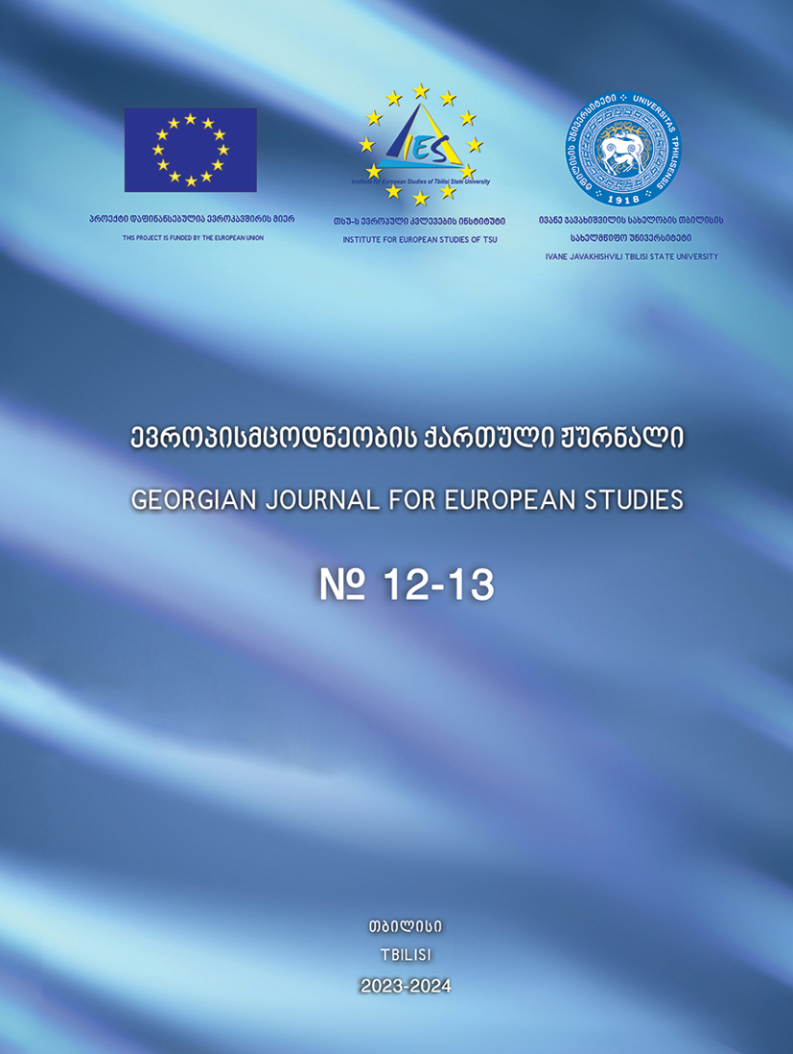EU-Georgia Relations and Democratization: An Analysis of Reforms and Challenges
Keywords:
European Union, Georgia, European integration, democratic reforms, judicial independence, electoral reforms, anti-corruption measures, social developmentAbstract
The main goal of this paper is to study the influence of the European Union (hereinafter EU) on the ongoing democratization process in Georgia. Through a detailed study of the existing strategic partnership and integration efforts between Georgia and the EU, the paper analyses how the EU became a catalyst for significant political, economic, and societal reforms in Georgia. This paper will discuss the main areas of reforms – political governance, rule of law, electoral integrity, and anti-corruption measures, to assess their impact on the development of Georgia's democratic governance and integration into the European community.
The role of the EU in promoting the country's ongoing democratization processes is evident. However, the paper also deals with the complexities and challenges of Georgia's integration into the European family. These challenges include national sovereignty, economic dependence, gaps in the implementation of obligations undertaken by Georgia under various agreements discussed in the paper, and socio-cultural incompatibility, which emphasizes the unique nature of Georgia's integration. Based on various sources, including policy documents, evaluations of international organizations, and analysis of academic literature, the study offers a balanced perspective on Georgia's achievements and challenges along the said path.
This paper also discusses the strategic importance and benefits of bilateral cooperation between the EU and Georgia for both sides and the potential for future cooperation. Because Georgia's European integration is its strategic choice, this paper contributes to the deep understanding of the transformative impact of EU involvement on Georgia's democratization process.


